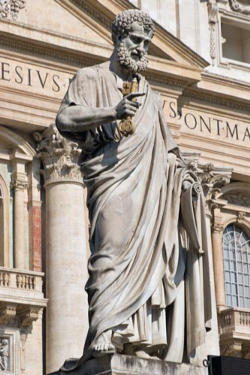Pope Francis, the leader of the Catholic Church, has often been at the center of discussions for his progressive views and approach to complex theological topics. His recent remarks on the concept of hell have sparked significant debate among theologians, media outlets, and the general public alike. These comments have not only challenged traditional interpretations but also invited a deeper reflection on the nature of divine justice and mercy.
As one of the most influential religious figures globally, Pope Francis's words carry immense weight, influencing millions of Catholics worldwide. His perspective on hell, particularly his hope that it might be empty, has ignited both criticism and praise. This article delves into the nuances of his statements, examining their implications within the broader context of Catholic doctrine and societal reactions.
In a recent Italian television interview, Pope Francis offered a surprising take on the traditional understanding of hell. He expressed a personal hope that hell could be empty, reflecting his emphasis on God's infinite mercy. This statement, however, was misinterpreted by some media outlets, leading to claims that he denied the existence of hell altogether. Such misunderstandings highlight the challenges of conveying nuanced theological concepts in a rapidly evolving media landscape.
Clarifying the Pope's Stance: Misinterpretations Addressed
The Vatican swiftly moved to clarify any confusion surrounding Pope Francis's remarks on hell. They emphasized that the Pope's comments were not a denial of its existence but rather an expression of his desire for all souls to find salvation. This clarification underscores the importance of distinguishing between personal hopes and doctrinal teachings within the Church.
It is crucial to recognize that while Pope Francis may personally wish for hell to be empty, this does not negate the Church's official stance on eternal judgment. The Vatican's response serves as a reminder that theological discussions require careful interpretation and context to avoid misleading conclusions. By addressing these misconceptions, the Church aims to maintain clarity and consistency in its teachings.
Moreover, the Vatican's intervention highlights the responsibility of journalists and media outlets to accurately report religious statements. Inaccurate portrayals can lead to unnecessary controversy and misunderstanding among the faithful. Therefore, fostering a culture of precise communication is essential in preserving the integrity of religious discourse.
Exploring the Concept of Divine Mercy
Pope Francis's reflections on hell align with his overarching theme of divine mercy, which he frequently emphasizes throughout his papacy. By expressing a hope for hell's emptiness, he invites believers to consider the boundless compassion of God. This perspective encourages individuals to focus on redemption and spiritual growth rather than fear-based doctrines.
His emphasis on mercy resonates deeply with many Catholics who seek a more compassionate approach to faith. It shifts the narrative from one of punishment to one of love and forgiveness, aligning with the core message of Jesus Christ. Through this lens, the Pope challenges the Church and its members to embody mercy in their daily lives, promoting healing and reconciliation.
However, this shift in focus does not diminish the reality of moral accountability. While emphasizing mercy, Pope Francis acknowledges the necessity of personal responsibility and repentance. By balancing these elements, he offers a holistic view of salvation that addresses both the heart and the conscience of believers.
Public Reaction and Media Influence
The reaction to Pope Francis's comments on hell revealed a wide spectrum of opinions across social media platforms. Some hailed his words as a refreshing departure from traditional fire-and-brimstone sermons, praising his focus on love and inclusivity. Others, however, criticized what they perceived as a watering down of essential Christian doctrines.
This divergence in responses illustrates the ongoing tension between modern interpretations and long-standing beliefs within the Church. Social media amplifies these debates, allowing diverse voices to contribute to the conversation. Yet, it also poses challenges, as misinformation can spread rapidly without proper verification or context.
To navigate this complex landscape, it is vital for both clergy and laypeople to engage in thoughtful dialogue about theological issues. By fostering open communication and mutual respect, the Church can address concerns and clarify misunderstandings effectively. Ultimately, such efforts strengthen the unity and mission of the global Catholic community.

